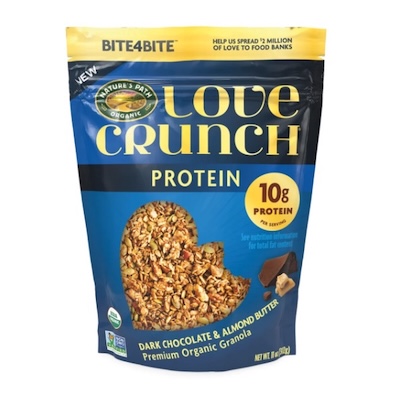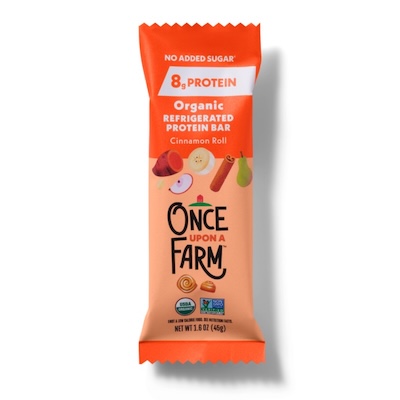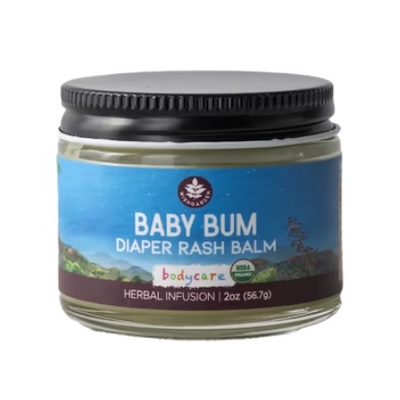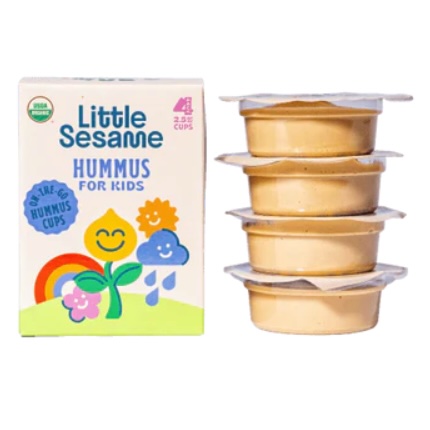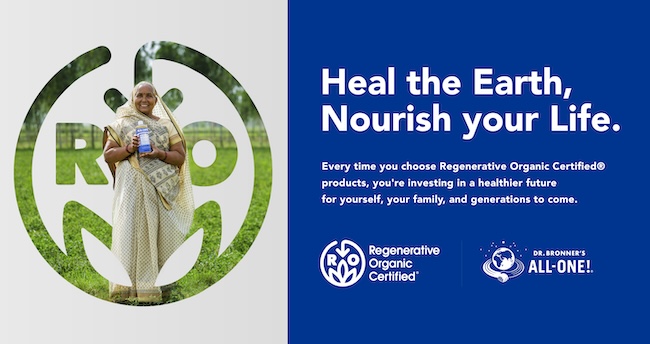
Regenerative Organic Certified® unveils First National Branding Campaign
(An example of how Dr. Bronner's, a ROC brand, is partnering with the certification to promote the campaign)
How Organic Insider operates: We accept no advertising, we have no paywalls and we make our newsletters free to everyone because vital information about our industry needs to get out to as many people as possible. Please consider becoming an Organic Insider+ subscriber, whether you are an individual or a company. Thank you so much.
When you look at what has been accomplished by the Regenerative Organic Certified® label (ROC) since its formation in 2017, it is nothing short of spectacular.
— 18.4M certified acres
— 2,040 certified products on the market
— 237 brands licensed
— 496 different kinds of crops
— 315 certified farms and ranches
— 63,331 smallholder farms
— The first certification to be featured on the homepage of Amazon’s Climate Pledge Friendly initiative.
Yet, despite the tremendous progress, the reality is that a large percentage of the marketplace is still unfamiliar with ROC and what it represents.
In an attempt to reverse this, the Regenerative Organic Alliance, which oversees the ROC label, has just released the certification’s very first national branding campaign called “Heal the Earth, Nourish your Life™” — all with the goal of educating retailers, consumers and producers on the healing power of regenerative organic agriculture.
“Those of us involved in this movement know that we have no choice but to get big quickly and reach as many people as possible, from the farmer to the consumer,” said Elizabeth Whitlow, ROA’s founding executive director.
The ROC brands choosing to be part of the campaign, known as Allies of the Regenerative Organic Alliance, will help execute digital campaigns, key visuals, thought leadership articles and shopper marketing.
ADDRESSING TWO KEY AREAS
With this campaign, there are two specific challenges that ROC is facing.
1) Communicating what ROC means
Based on The Hartman Group’s Beyond Organic 2024 report — and many previous grocery shopping reports — consumers convincingly believe that “natural” is a more important characteristic than “organic.”
So, given that we are more than two decades into the USDA’s National Organic Program, and consumers still do not fully understand or appreciate the meaning of organic, explaining the term Regenerative Organic Certified® is unquestionably a formidable task.
Nevertheless, it must be tackled, and this is precisely what the marketing campaign is attempting to do.
Even if a consumer cannot fully articulate what ROC means, the campaign’s slogan “Heal the Earth, Nourish your Life™” communicates that ROC is beneficial for both the planet and an individual’s personal health, the latter of which will likely have greater influence when making a purchasing decision.
And if the full marketing collateral is used, such as below, it does give the detailed explanation of ROC and its three pillars — “It goes beyond no synthetic pesticides, no toxic additives, and non-GMO ingredients by championing biodiversity and healthier soils, protecting animal welfare and ensuring worker well-being.”
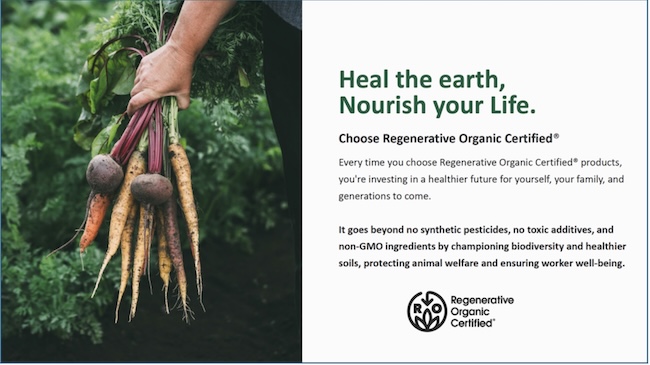
So, based on the digital touchpoint and how much information consumers want to absorb, the marketing hierarchy will meet them where they are.
2) Distinguishing itself from “regenerative” alone
There is tremendous confusion in the marketplace about “regenerative” — as there is no widely accepted definition of what this term means — and many people speculate that it is taking market share away from “organic.”
Not surprisingly, the major chemical companies have eagerly embraced the term, and the State of California just defined “regenerative” without any prohibition of toxic chemicals.
So, with ROC’s campaign, spelling out the full “Regenerative Organic Certified®” name is important from a branding perspective, in that “regenerative” is attached to “organic,” communicating the importance of these two terms being together and that one needs to go with the other.
THE ROLE OF THE BRANDS
What differentiates this organic branding campaign from previous ones is the expected long-term participation of ROC brands.
Aside from the fact that it is in their financial interest to promote this campaign, ROC brands fervently believe in both the mission of the certification and that regenerative organic agriculture is key to saving the planet. Having been at numerous ROC events and interacted with these companies over the years, the passion, commitment and devotion to the ROC cause is incredibly genuine and deep.
So, when you combine this spirit with the social media and marketing reach of the participating ROC companies, the campaign is comprised of critical elements for success and should have real staying power.
And the brand-building of the Regenerative Organic Certified® label will only have a positive impact on organic, in general.
 |
With gratitude, 
Max Goldberg, Founder |
Quick Hits
* Dr. Bronner’s has quit B Corp, saying that “weak rules” are letting firms greenwash.
* GMO Free USA had an advertisement in this year’s printed version of the Super Bowl program, which was distributed to over one million football fans.
* Rodale Institute and DAVINES Group, a global leader in sustainable beauty, are introducing The Good Farmer Award to the U.S. in 2025. Applications are due by March 22nd.
* Ingredient supplier CIRANDA has launched a new e-commerce website, providing its customers a one-stop shop for organic, Non-GMO and fair trade ingredients.
* Natural Grocers issued its 2024 Sustainability Report, which includes more than $4 million of donations to local food bank partners.
* Steven Heim has joined watchdog group OrganicEye as a board member.
* M2 Ingredients announced the grand opening of its state-of-the-art organic mushroom growing facility.
* Simply Organic has surpassed $1M in funding to address food insecurity.
* In Partnership with the South Seas University, The Regeneration International Academy announced the Certificate Course on Agroecological, Regenerative and Organic Agriculture from February 17th to March 18th.
* Organic Seed Growers Conference takes place February 26th to March 1st in Oregon and online.
* Naturally Bay Area and Naturally North Bay have merged and are now known as Naturally NorCal.
New Organic Products
Love Crunch Protein Granola from Nature's Path
Nature's Path has expanded its premium granola line, Love Crunch, with two new offerings -- Almond Butter Protein Granola and Organic Peanut Butter Protein Granola. Featuring 10g of pea protein per serving and 21g of whole grains, both varieties are made with fair trade ingredients, as well as being USDA certified organic and Non-GMO Project verified. Now available on the company's website and Amazon, in addition to retailers such as Target, Walmart and Kroger.Refrigerated Protein Bar from Once Upon a Farm
Once Upon a Farm just announced the launch of its Refrigerated Protein Bars in two flavors -- Oatmeal Chocolate and Cinnamon Roll. Tailored for growing and active kids, each bar contains 8g of protein from milk and whey concentrate -- the same amount as 1 cup of whole milk -- along with real fruits & vegetables, whole grain oats and no-added sugar. USDA certified organic and Non-GMO Project verified, they are available on the company's website, as well as at Target, Costco, Sprouts and Kroger.Bodycare Line for New Mothers and Babies from WishGarden Herbs
Woman-owned and family-run since 1979, WishGarden Herbs has launched a new line of bodycare products to support moms and babies during pregnancy and postpartum. Using only plants and premium non-comedogenic oils, the entire line is USDA certified organic and is comprised of Pregnant Belly Oil, New Mother Nursing Balm, Perineum Massage Oil, Baby Bum Balm and Oh Baby Oils. The company prioritizes sourcing its ingredients from domestic regenerative organic farms.Hummus for Kids from Little Sesame
Little Sesame has introduced a snack offering for children with its Hummus for Lids. Made with chickpeas, the 2.5 oz. grab-and-go packs feature 5g of protein and come in four to a box. Available at Whole Foods Market nationwide and on the company’s website, it is certified organic, in addition to being the first and only hummus to earn the Clean Label Certification.
Weekly News Summaries
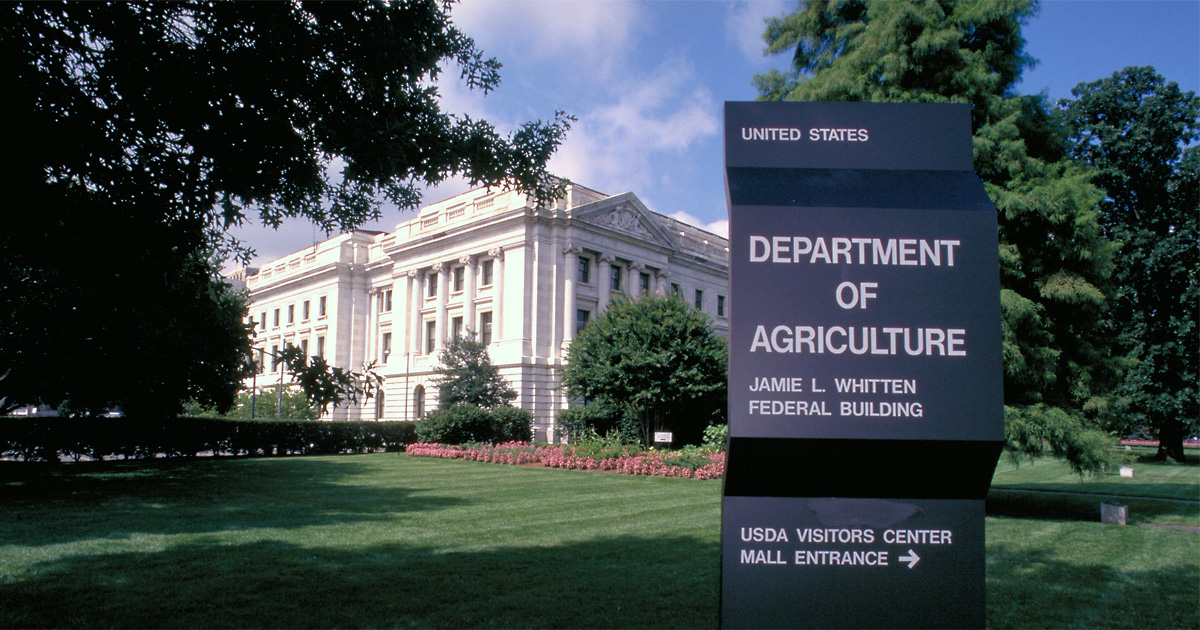

USDA pauses 2 Organic Programs, Leaving Farmers on the Hook for Millions
By Marcia Brown
The pause on the $85 million Organic Market Development Grant program and the $100 million Transition to the Organic Partnership Program has jolted farmers, nonprofits and businesses struggling to make planting and hiring decisions. Even if the pause on funding is lifted, it could put farmers out of business.

Hazelnut Grower is Suing the USDA over the Credibility of Imported Organic Goods
By Matthew Malcom
An organic hazelnut farmer from Oregon, Bruce Kaiser, discusses his lawsuit against the USDA.

Two Industry Executives Join E.P.A. to Help Oversee Chemical Rules
By Hiroko Tabuchi
Dr. Nancy Beck is credited with leading a wide-ranging pushback against chemical regulations during the first Trump administration, and she rewrote rules that made it harder to track the health consequences of a “forever chemical” linked to cancer.

Non-GMO Project launches Non-Ultraprocessed Foods Verification
The Non-GMO Project was spurred to introduce this certification because it found that 85% of shoppers want to avoid UPFs.
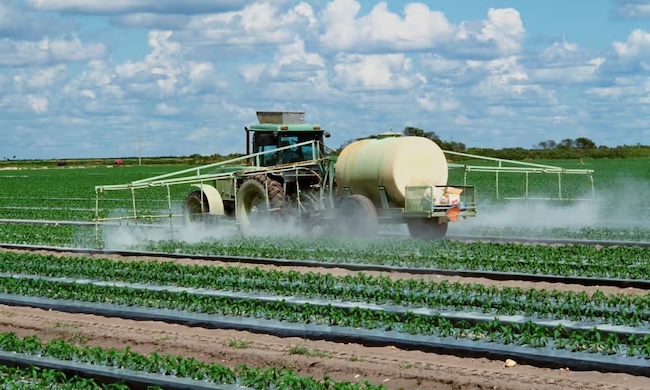

US-Funded ‘Social Network’ Attacking Pesticide Critics Shuts Down after Guardian Investigation
By Carey Gillam, Margot Gibbs and Elena DeBre
It was also discovered that v-Fluence was funded by U.S. tax dollars via a 3rd party.

Edacious raises $8.1M for Nutrient Density
By Elaine Watson
In a round led by Patagonia’s venture fund Tin Shed Ventures, the company is developing a rapid testing and data insights platform to measure and map nutrient density in whole foods, from meat and milk to fresh produce.

In Pennsylvania, 100,000 Organic Eggs Worth $40,000 were Stolen
By Kiki Intarasuwan
Pennsylvania State Police said approximately 100,000 eggs were taken from the back of Pete & Gerry's Organics' distribution trailer, and an investigation is ongoing.

Recent Court Ruling Could Impact Organic Trade with the EU
The European Court of Justice issued a judgment concerning the labeling of organic products and the use of the EU organic label, something that could have lasting implications for trade into the EU market under the U.S./EU organic equivalence agreement.


Thousands Condemn U.S. and Canada Attempt to Force Mexicans to Eat GMO Tortillas
Activists say that the US-Mexico-Canada trade agreement tribunal undermines Mexico’s authority to protect its health and environment.

In Iowa, a Bill Shielding Pesticide Manufacturers from Cancer Lawsuits Advances in Senate
By Sabine Martin
Similar bills in many states throughout the Midwest are advancing in legislatures.

Two New Papers Reveal Startling Human Health Risks from Neonicotinoid Pesticides
By Dr. Jennifer Sass
Data obtained from the EPA show that there are significant health risks associated with neonicotinoid pesticides, particularly for children and pregnant women.
Want to share this newsletter on social media? You can use this link: Newsletter Link
The material in this newsletter is copyrighted and may be reprinted by permission only. All requests must be in writing. Please use our contact form to request republication rights.
Newsletter Archive
Quick Hits
* Dr. Bronner’s has quit B Corp, saying that “weak rules” are letting firms greenwash.
* GMO Free USA had an advertisement in this year’s printed version of the Super Bowl program, which was distributed to over one million football fans.
* Rodale Institute and DAVINES Group, a global leader in sustainable beauty, are introducing The Good Farmer Award to the U.S. in 2025. Applications are due by March 22nd.
* Ingredient supplier CIRANDA has launched a new e-commerce website, providing its customers a one-stop shop for organic, Non-GMO and fair trade ingredients.
* Natural Grocers issued its 2024 Sustainability Report, which includes more than $4 million of donations to local food bank partners.
* Steven Heim has joined watchdog group OrganicEye as a board member.
* M2 Ingredients announced the grand opening of its state-of-the-art organic mushroom growing facility.
* Simply Organic has surpassed $1M in funding to address food insecurity.
* In Partnership with the South Seas University, The Regeneration International Academy announced the Certificate Course on Agroecological, Regenerative and Organic Agriculture from February 17th to March 18th.
* Organic Seed Growers Conference takes place February 26th to March 1st in Oregon and online.
* Naturally Bay Area and Naturally North Bay have merged and are now known as Naturally NorCal.
